How China’s Belt and Road Initiative became a huge geopolitical controversy
China says its infrastructure programme will spread trade and prosperity; critics warn its aim is to trap nations in debt. But for cash-strapped countries like Pakistan, there are few alternatives, as Kim Sengupta explains

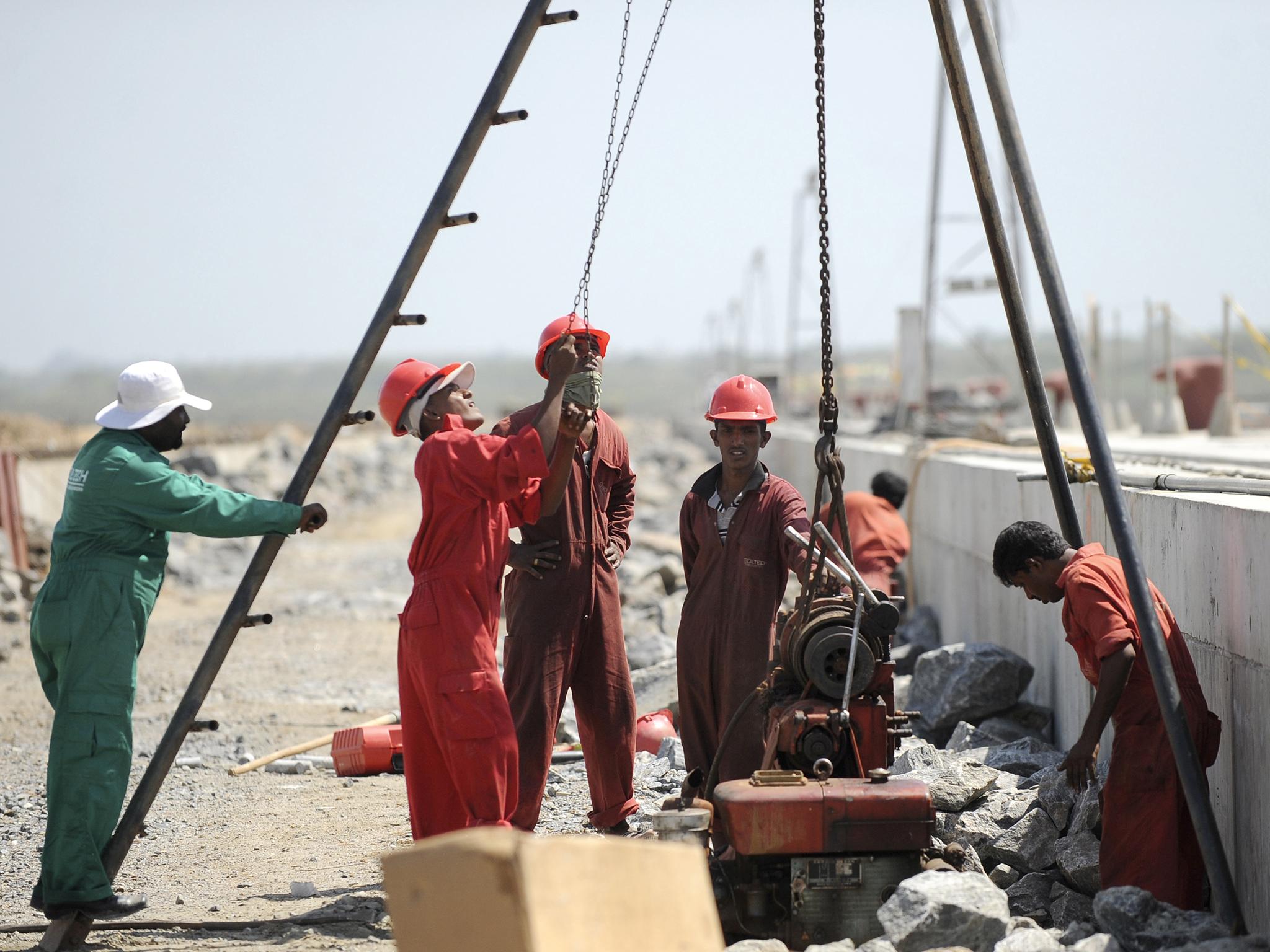
An international conference took place last week in Gwadar, a dusty Pakistani town perched on the edge of the Indian Ocean – an unlikely place, one would have thought, for Imran Khan’s government to invite dignitaries from 26 countries. But the real aim was to display a vision of the future – a mighty port city and commercial centre for the region which would put Dubai and Bahrain in the shade.
Not everything went according to plan. While the delegates were being shown around the site of this projected mega city, gunmen on motorcycles shot dead three workers and injured five others constructing homes in the suburbs for future residents. It was the fourth fatal shooting in the area in recent months; more than three dozen builders had died in a series of attacks, with the Baloch Liberation Front, a group seeking an independent Balochistan, being held responsible.
The development of Gwadar is a matter of vital importance for a Pakistani government trying to rescue an economy which is in dire straits. It has repeatedly claimed that violence in the area has been brought under control. On a trip to the town two weeks ago, however, my colleagues and I were only allowed to move around under army escort.
But separatist strife is not the only issue with Gwadar. The port is a prominent part of the $60bn (£46bn) China-Pakistan Economic Corridor (CPRC), which in turn is part of Beijing’s global Belt and Road Initiative, a massive and controversial mission which has become a huge geopolitical talking point.
To the Chinese government and its supporters, the Belt and Road project – set to be established in Asia, Africa and parts of Europe, with offshoots in Latin America – is a purely strategic infrastructure programme which will spread trade and the benefit it brings across many lands.
To its growing number of detractors, the real aim is to spread Chinese hegemony using commerce in tandem with the naval bases – the “String of Pearls” – Beijing is building on the Pacific and Indian Oceans. The covert motive, it is claimed, is to spread “debt-trap diplomacy” by providing finance and then extracting advantage when debtor countries have difficulties paying back. The most notorious example of this so far is Sri Lanka ceding a port, Hambantota, in return for the waiver of $1bn on loans.
This is a good time to ask the Saudis for favours, they wouldn’t want to turn anyone away with the bad publicity they are getting
China is Islamabad’s long-term, staunch backer and is increasingly important – especially as a previous ally, the US, is now courting India, the country with which Pakistan has been locked in rivalry since both states became free from British colonial rule more than seven decades ago.
There is also the crucial economic factor: Pakistan is greatly in need of money from its friends. Two weeks ago, the country’s new prime minister, Imran Khan told The Independent in an interview about the stark reality of the financial situation. While many international political and business leaders had pulled out of an economic forum in Riyadh following the murder of journalist Jamal Khashoggi in the Saudi consulate in Istanbul, he had to go because, he admitted, “We are desperate for money ... The reason I have to take this opportunity is because we are a country of 210 million people and we have the worst debt crisis in our history.” Without funding from abroad, he pointed out, “we actually won’t have in another three months enough foreign exchange to service our debts or pay for our imports.”
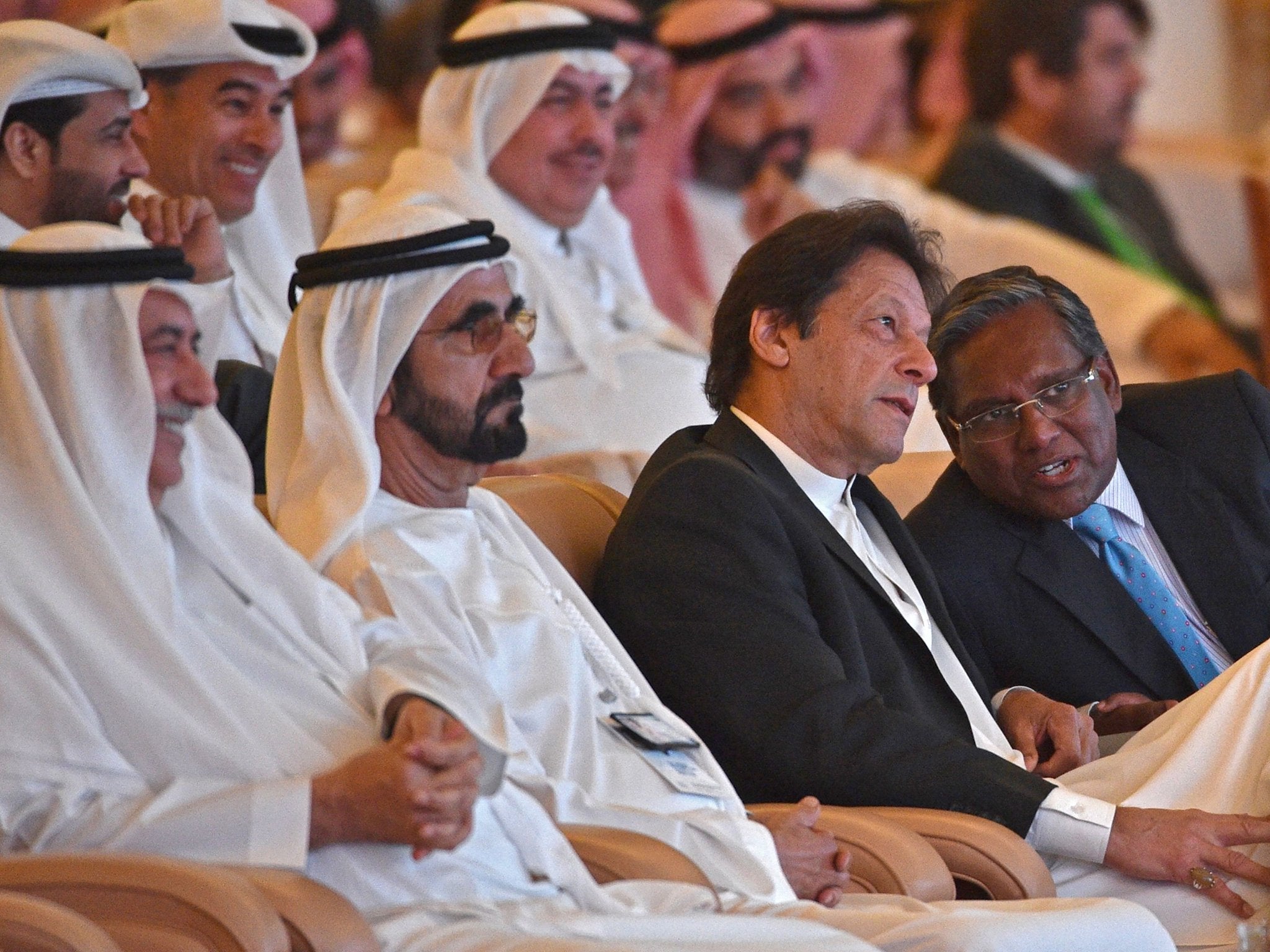
Khan wanted to attract investors at the forum to Pakistan. But the main aim was to secure Saudi largesse. Failure to get funds from the kingdom as well as from China would mean turning to the International Monetary Fund (IMF) for Pakistan’s 13th bailout – accompanied by inevitably harsh strictures on public spending, with the population already suffering from an austerity package.
Khan secured a very welcome $6bn from the Saudis after meeting the crown prince, Mohammed bin Salman, the man who has been accused of being complicit in Jamal Khashoggi’s death (though he denies any knowledge). “It sounds callous, I know,” said a senior official in Islamabad, “but this is a good time to ask the Saudis for favours, they wouldn’t want to turn anyone away with all the bad publicity they are getting.”
As well as the loan pledge, Pakistan got an agreement for Saudi Arabia to invest in a new oil refinery in Gwadar. A Saudi delegation visited the port and, according to petroleum minister Ghulam Sarwar Khan, “showed an interest to immediately invest in the refinery”. The agreement will be signed by the kingdom’s oil giant Aramco and the Pakistan State Oil company, but, he said, “we sat down and held discussions and it was principally decided by both sides that it will be a government to government agreement.”
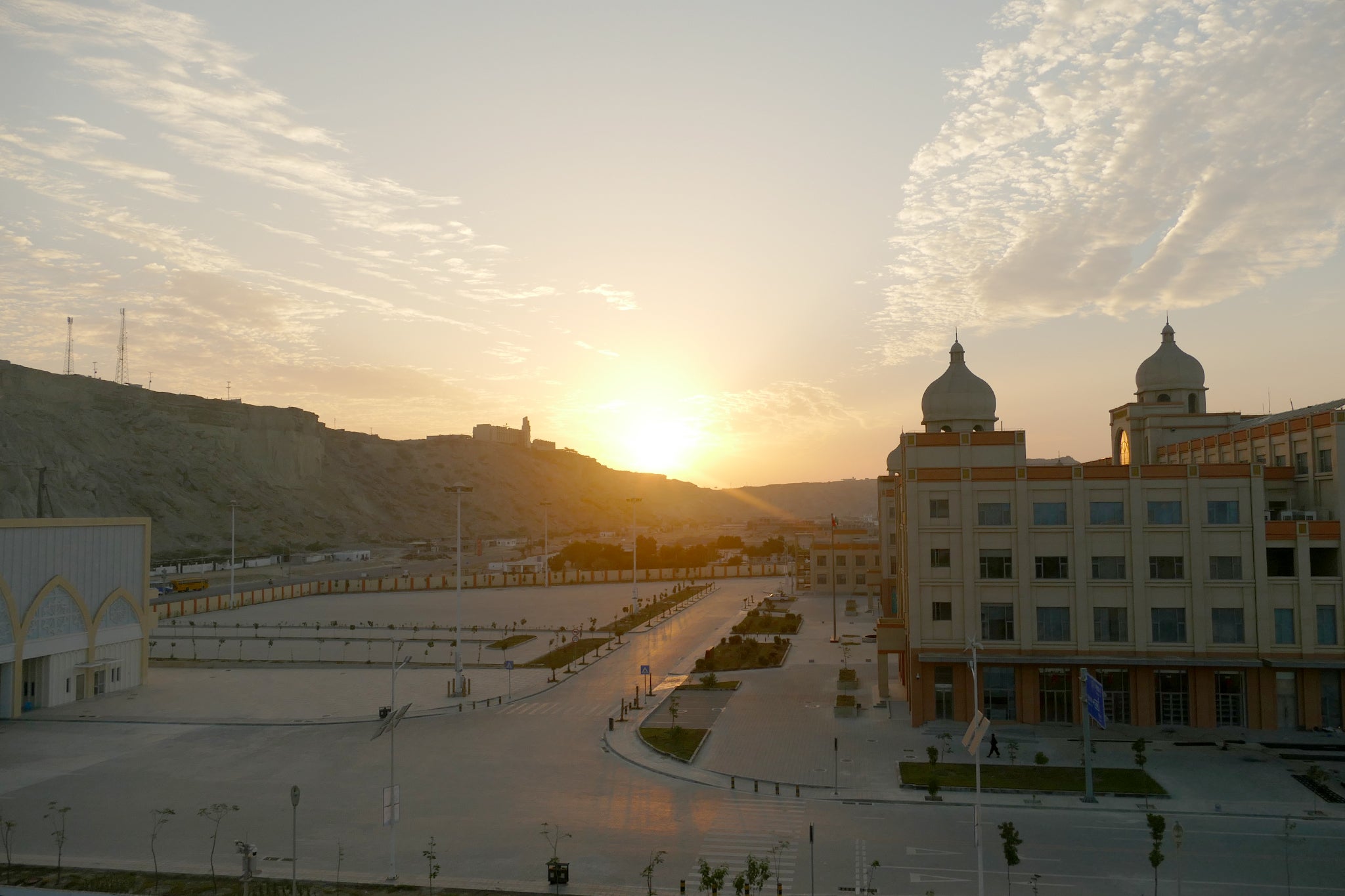
This week Khan was on a trip to China during which he sought further funds to add to the $6bn Beijing has loaned Pakistan since last year to prop up its foreign exchange reserves. There were recriminations after Pakistan’s national television channel used a caption saying “begging” instead of “Beijing”. It was due to an unfortunate typographical error, the broadcaster said in its apology.
Beijing is expected to acquiesce, but it has also repeated its call on Islamabad to carry out the type of structural reforms the IMF had also demanded in response to Pakistan’s latest appeal for help.
There has also been annoyance in Beijing at criticism of the Belt and Road from Pakistani officials, including Khan himself when he was in opposition, as well as two officials in his government. Abdul Razzak Dawood, an adviser to the prime minister on commerce, had held that some of the deals made were unfair to Pakistani companies. The railways minister, Sheikh Rashid, has wanted to cut the size of the Karachi-Peshawar rail line, saving $2bn from the $8bn budget.
There are also claims, in Pakistan and abroad, that the Belt and Road is one of the main contributors to Pakistan’s economic problems. Beijing has insisted that Pakistan buy Chinese equipment for projects, which has denuded foreign exchange reserves. Beijing has then extended loans to cover the purchases, which, in turn, has sent debt soaring further.
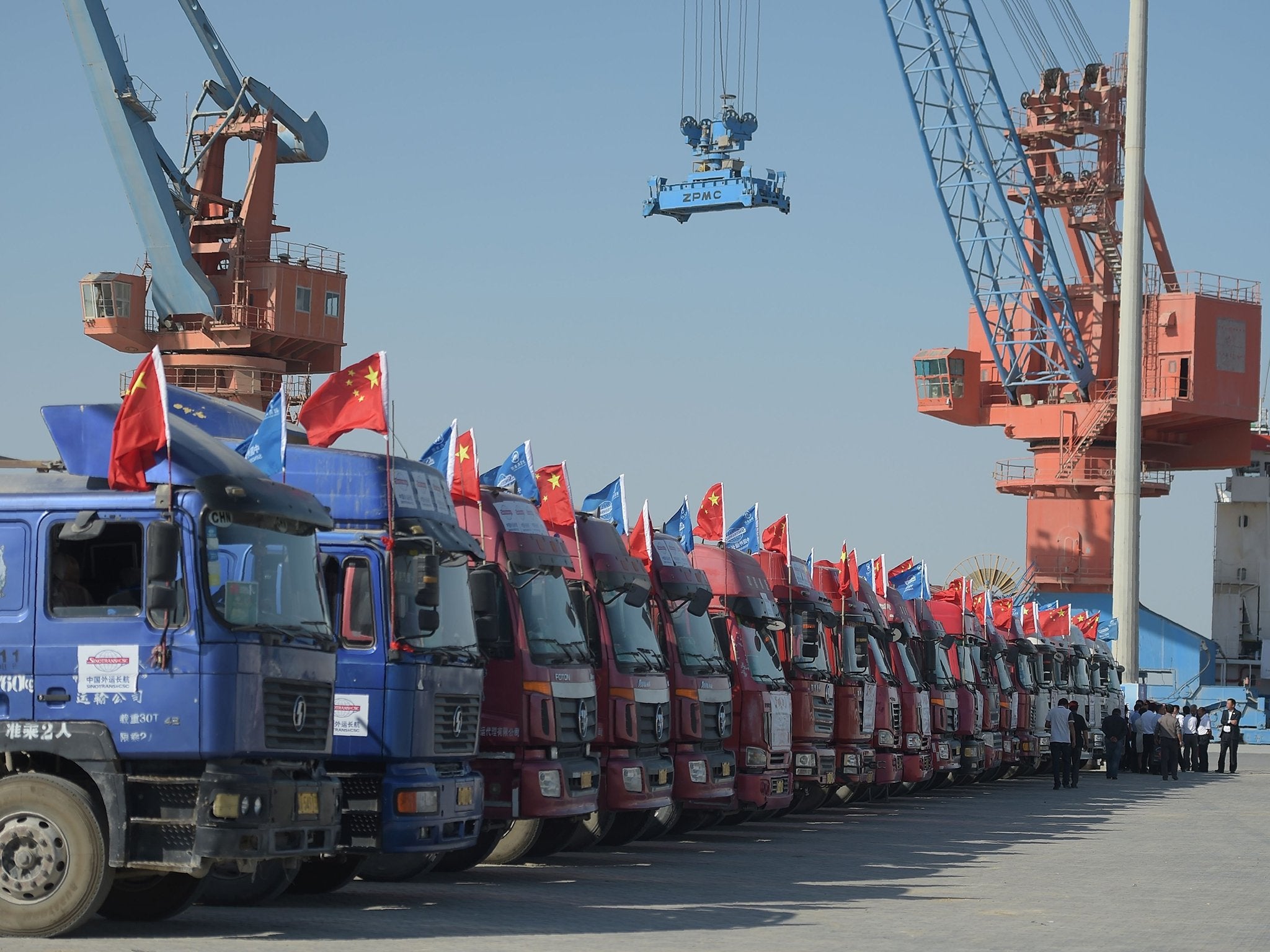
The IMF has insisted that any loan it gives to Pakistan is not used to pay off the China debt. The organisation’s managing director, Christine Lagarde, has stressed that there must be “absolute transparency” over this. The US, too, has demanded similar stipulations. Washington has long been hostile towards the Chinese project, charging that Beijing is using it to hold nations in thrall.
Relations between the US and Islamabad are at a particularly low ebb at present, in any case. Successive American presidents have threatened to cut aid to the Pakistani military unless action was taken against the Taliban and other violent Islamist groups which the west (and the Afghan government) claim are fed and watered in Pakistan and sent to carry out murderous attacks in Afghanistan. Pakistan has always denied the allegation.
Donald Trump’s first tweet this year said that the US “has foolishly given Pakistan more than $33bn in aid over the last 15 years, and they have given us nothing but lies & deceit, thinking of our leaders as fools”. The US administration announced in September that it was cutting $300m in aid to Pakistan’s military.
The Chinese are concerned by armed insurgency across the border in Balochistan where they have been in confidential negotiations with rebel groups for some time. However, with the Gwadar plan, it is the possibility of being drawn into a wider confrontation, if Saudi Arabian investment in the port is confirmed, which is a cause of unease.
A Saudi presence so near to Pakistan’s Iranian border risks, some Chinese senior officials fear, China being dragged into the confrontation between Sunni and Shia states in the Middle East. This is especially of concern as China is a major importer of Iranian oil, and has begun to invest heavily in Iran –picking up contracts being left behind by western companies pulling out after the reimposition of sanctions by the Trump administration.
Iran has experienced a number of terrorist attacks claimed by Isis which Tehran has blamed, without offering evidence, on Saudi Arabia. The scope for sectarian trouble spreading to Balochistan was illustrated last month when 14 Iranian border guards were abducted by an extremist Sunni group Jaish al-Adli. Pakistani security forces say they have failed to find the kidnapped men, leading to warnings of action being taken by the Iranians.
The Pakistani government has stressed that the Saudi money did not come with political strings attached and, in his interview before he went to Riyadh, Imran Khan spoke of his regret at Mr Trump tearing up the nuclear deal with Iran and pursuing punitive measures against the country.
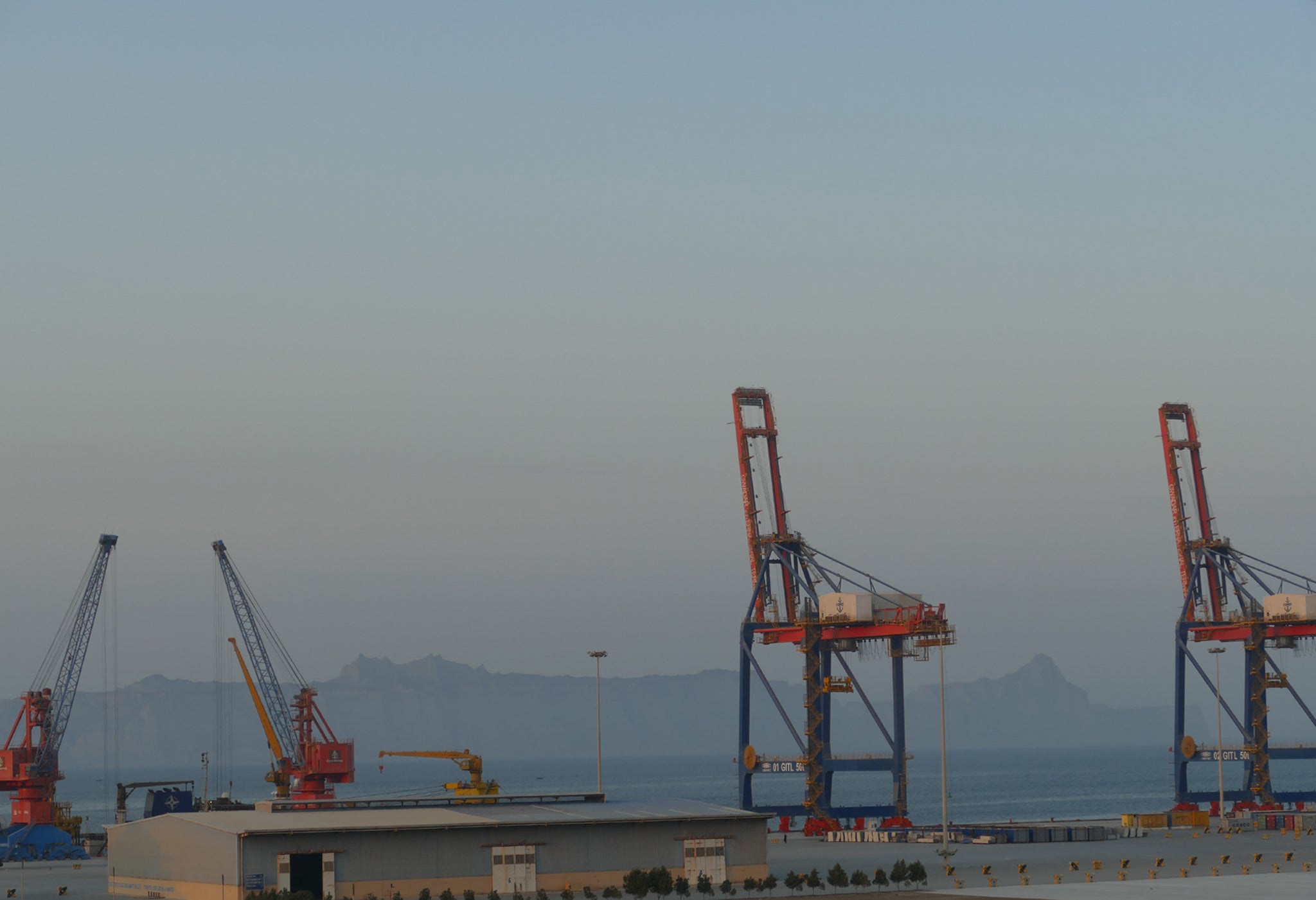
The prime minister said that Pakistan would like to be an intermediary between Saudi Arabia and Iran. Yet the Saudi-led Sunni block were unhappy when the Pakistani parliament, under the previous government, refused to take part in the current war in Yemen. Islamabad was privately warned that it would have to choose sides sooner rather than later. There have long been reports that Saudi Arabia has “bought” a nuclear bomb from Pakistan to act as a counter against a “Shia bomb” produced by Iran – and the Islamic Military Counter Terrorism Coalition, set up by Riyadh and led by a Pakistani commander, General Raheel Sharif, primarily exists to counter Shia forces.
According to Theodore Karasik, at Gulf State Analytics, a Washington consultancy firm, “Saudi moves and investments in Pakistan are a set and established policy that seeks to better integrate Islamabad into Riyadh’s camp.”
Robert Emerson, a British security consultant, says: “China have invested heavily in Pakistan, but it is also engaging in a substantial way commercially with Iran. It is understandable that they do not want to see a Saudi presence imported into Gwadar, just over a 100km from the Iranian border.
“But China also now has problems with Belt and Road. There has been consistent opposition from the US, Japan, India and others and now we see some of those countries which were going to take part in it are having second thoughts.”
A number of states, including Malaysia, Nepal and Myanmar have pulled out of Chinese-financed programmes. Recent elections in the Maldives saw the defeat of the Beijing-backed President Abdulla Yameen under whose rule the nation has accrued $1.3bn debt to China, more than a quarter of its GDP. The opposition – whose candidate, Mohamed Solih, won at the polls – had warned of being sucked into a “serious debt trap”.
In Colombia there has been widespread local opposition for eight years to the building of the $4bn Ituango dam, part funded by the Chinese, in an area with propensity for landslides. This year 26,000 people had to be evacuated after heavy rainfall led to a landslide environmentalists have been warning about.
Saudi moves and investments in Pakistan are a set and established policy that seeks to better integrate Islamabad into Riyadh’s camp
It has now been almost a decade since China overtook the US as Africa’s biggest trading partner. Nine countries have signed Belt and Road agreements with Beijing and 20 others are engaged in talks to do so. The Chinese government pledged $60bn in preferential loans and investments at an economic forum for Africa three years ago.
African countries, so far, have been readily receptive to the Chinese loans which have been pouring in. But concerns have been raised too, with the Centre for Global Development finding, for instance, that Djibouti, where the Chinese now have a military base, has seen its foreign debt swell from 50 per cent to 85 per cent of GDP with the largest amount by far owed to China. The Chinese company CMPort, the same one which built Hambantota in Sri Lanka, now under Chinese control, is building a port in the country at Doraleh.
China also has aspirations for Europe to be the final destination for the land route of the Belt and Road, with the aim that every day trains from Chinese trading cities would arrive at distribution points in Duisburg, Madrid and London.
But six months ago 27 out of 28 European Union ambassadors in Beijing signed off a report saying the project “runs counter to the European Union’s agenda for liberalising trade and pushes the balance of power in favour of subsidised Chinese companies”.
In September, Brussels launched its response to the Belt and Road: the building of infrastructure across Europe and Asia with Federica Mogherini, the head of European Union foreign policy, describing it as the “European way” of connecting the two continents.
But the European Union may not remain unified in its approach. The Hungarian ambassador did not sign the report in Beijing and now Britain appears to be keen for China deals. In December last year Philip Hammond, on a visit to Beijing, said, “I was privileged earlier this year to represent the UK at the first Belt and Road forum and one of the things we will discuss is the opportunity for closer collaboration in delivering the ambitions of the Belt and Road programme.”
Like Imran Khan’s Pakistan, Theresa May’s post-Brexit Britain cannot ignore Beijing at a time of economic hardship, however the true cost of this Chinese connection will unfold in the future.
Join our commenting forum
Join thought-provoking conversations, follow other Independent readers and see their replies
Comments